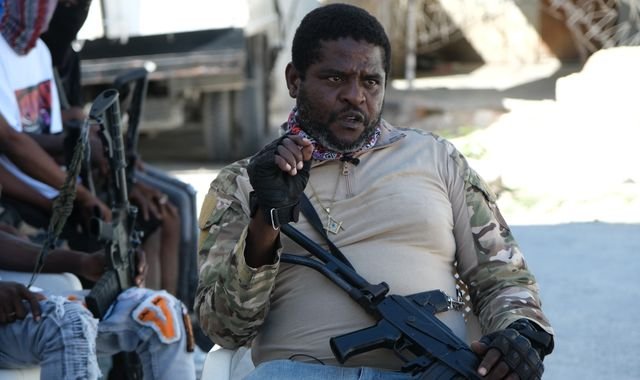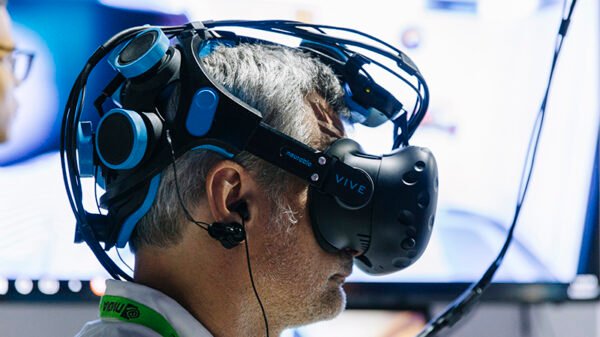Gang Leader’s Demands in Haiti
In Haiti, the presence of powerful gang leaders has long been a challenge for the government and the people. One such influential figure is Jimmy Chérizier, who has recently made headlines by setting conditions for his group to lay down their weapons. Chérizier’s demands have created a significant impact on the ongoing talks and have raised important questions about the role of these gang leaders in the country’s future.
The Rise of Jimmy Chérizier
Jimmy Chérizier, also known as “Barbecue,” is the leader of the G9 alliance, a coalition of nine gangs operating in the impoverished neighborhoods of Port-au-Prince, Haiti’s capital. Born and raised in the slums, Chérizier has risen to power through a combination of charisma, force, and connections.
Chérizier’s group has been involved in various criminal activities, including drug trafficking, kidnapping, and extortion. Their actions have resulted in widespread fear and instability among the Haitian population, making them a powerful force that cannot be ignored.
Conditions for Laying Down Weapons
Chérizier’s recent demands for his group to lay down their weapons have caught the attention of the government and the international community. These conditions highlight the complex dynamics between the state, the gangs, and the people affected by their actions.
One of Chérizier’s key demands is a role for his group in the ongoing talks. He believes that the gang leaders should have a say in shaping the future of Haiti, arguing that they represent the marginalized and neglected communities that have been left behind by the government. Chérizier sees himself as a voice for the voiceless, advocating for social justice and equal opportunities.
Another demand put forward by Chérizier is the implementation of social programs in the gang-controlled areas. He argues that poverty and lack of opportunities are the root causes of gang violence and criminal activities. By addressing these underlying issues, Chérizier believes that the cycle of violence can be broken, and a more stable and prosperous Haiti can be built.
Implications and Challenges
The demands of Jimmy Chérizier and other gang leaders in Haiti present both opportunities and challenges for the government and the society as a whole. On one hand, including these influential figures in the talks could potentially lead to a more inclusive and comprehensive solution to the country’s problems. Their firsthand knowledge of the issues faced by marginalized communities could bring a fresh perspective to the table.
However, there are also concerns about the implications of giving power and legitimacy to individuals with a history of criminal activities. Critics argue that it could set a dangerous precedent and undermine the rule of law. They fear that this could create a situation where those who resort to violence are rewarded, further perpetuating a culture of criminality.
Moreover, implementing social programs in gang-controlled areas is not a straightforward task. It requires a coordinated effort between the government, NGOs, and international partners to address the root causes of poverty and provide sustainable solutions. It also raises questions about accountability and transparency in the allocation of resources.
The Way Forward
Addressing the demands of gang leaders like Jimmy Chérizier requires a delicate balance between acknowledging the grievances of marginalized communities and upholding the principles of justice and security. The government must engage in meaningful dialogue with all stakeholders, including community leaders, civil society organizations, and international partners, to find a way forward.
It is crucial to address the underlying issues of poverty, inequality, and lack of opportunities that fuel gang violence. By investing in education, job creation, and social infrastructure, the government can provide alternatives for young people who might otherwise be drawn into criminal activities.
At the same time, the government must ensure that the rule of law is upheld and that those responsible for criminal acts are held accountable. This requires strengthening the justice system, improving law enforcement capabilities, and promoting a culture of transparency and accountability.
In conclusion, the demands of gang leader Jimmy Chérizier in Haiti have brought attention to the complex dynamics between the state, the gangs, and the marginalized communities. While including these influential figures in the talks may have its benefits, it is essential to strike a balance between addressing grievances and upholding the principles of justice and security. The way forward lies in meaningful dialogue, investment in social programs, and a commitment to the rule of law.




































